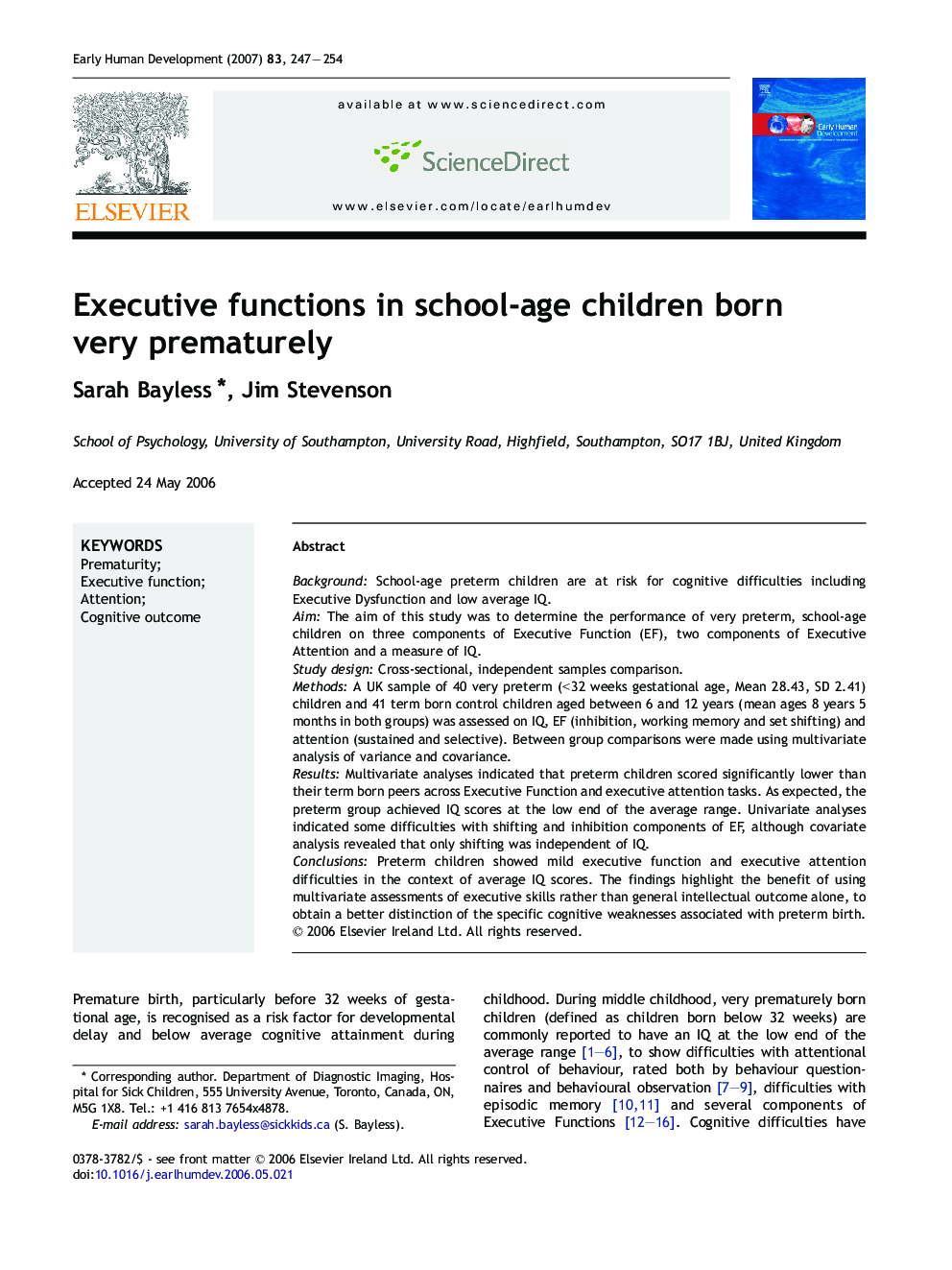| Article ID | Journal | Published Year | Pages | File Type |
|---|---|---|---|---|
| 3917873 | Early Human Development | 2007 | 8 Pages |
BackgroundSchool-age preterm children are at risk for cognitive difficulties including Executive Dysfunction and low average IQ.AimThe aim of this study was to determine the performance of very preterm, school-age children on three components of Executive Function (EF), two components of Executive Attention and a measure of IQ.Study designCross-sectional, independent samples comparison.MethodsA UK sample of 40 very preterm (< 32 weeks gestational age, Mean 28.43, SD 2.41) children and 41 term born control children aged between 6 and 12 years (mean ages 8 years 5 months in both groups) was assessed on IQ, EF (inhibition, working memory and set shifting) and attention (sustained and selective). Between group comparisons were made using multivariate analysis of variance and covariance.ResultsMultivariate analyses indicated that preterm children scored significantly lower than their term born peers across Executive Function and executive attention tasks. As expected, the preterm group achieved IQ scores at the low end of the average range. Univariate analyses indicated some difficulties with shifting and inhibition components of EF, although covariate analysis revealed that only shifting was independent of IQ.ConclusionsPreterm children showed mild executive function and executive attention difficulties in the context of average IQ scores. The findings highlight the benefit of using multivariate assessments of executive skills rather than general intellectual outcome alone, to obtain a better distinction of the specific cognitive weaknesses associated with preterm birth.
